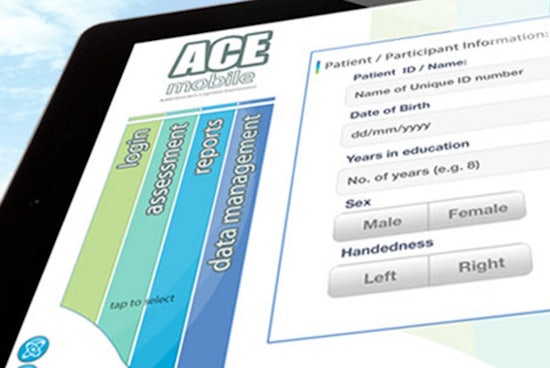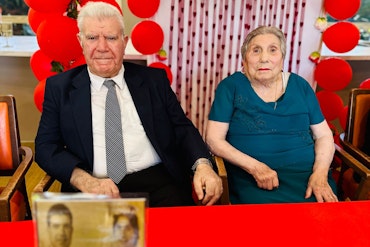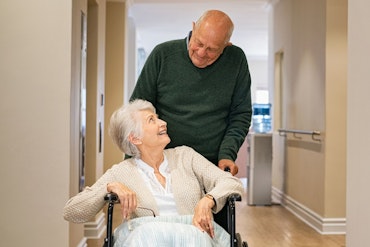Changing the way clinicians diagnose dementia
A free smartphone app to support the assessment of dementia may help change the way clinicians diagnose dementia, allowing greater scope to treat earlier.

Developed by Neuroscience Research Australia’s, Professor John Hodges, and UK colleagues, the ACEmobile may help change the way clinicians diagnose dementia.
Developed by Neuroscience Research Australia’s Professor John Hodges and colleagues at Plymouth University, in the UK, to reliably screen for dementia, the ACEmobile app, which launched recently, is designed by clinicians, for clinicians, for use on iPads.
Reportedly the first of its kind, ACEmobile is an iPad based tool that assists doctors and nurses to conduct dementia assessments thereby widening the clinical team. The iPadbased tool guides the user through the Addenbrooke’s Cognitive Examination (ACE-III) – the most popular and commonly used paper and pencil dementia screening tool.
The app removes the need for clinicians to learn the ACE-III manual. It also automatically calculates patients’ scores and creates a report for their medical records.
The creators have designed the app to make dementia assessment easier and more reliable for staff and health professionals globally. The research team will collect information from each assessment conducted using the app, with a plan to improve the sensitivity of ACEmobile for earlier dementia diagnosis and in assessment of the effect of new medications as they are tested.
One of the major factors holding back the development of new treatments for dementia is the relative insensitivity of currently used instruments.
NeuRA’s Professor Hodges, who designed the original test, said: “The vision was to provide a computerised version of the ACE, while adhering to the philosophy of creating tests for clinicians at no cost, has today been realised. To see ACE developed into an online medical tool means greater access to early and decisive diagnoses for all people worldwide. A diagnosis can now be made anywhere there is an internet connection, which is particularly important in parts of the world where resources are limited.
“The Plymouth team have done a great job producing such an attractive and userfriendly app which I’m sure will find wide usage.”
Dr Rupert Noad, consultant neuropsychologist at Plymouth Hospitals NHS Trust, said: “ACE-III is a great assessment tool, but as with many such tools which are paper-based, it runs the risk of human error and miscalculation. By producing the ACEmobile app we have reduced this risk and created a tool that can be used by the wider dementia care team.”
The ACEmobile will change the way clinicians diagnose dementia allowing greater scope to treat earlier. This foray into e-health is a step forward in global health care.
“Not all elderly patients with suspected dementia can be screened in specialists’ centres particularly with increasing pressure on healthcare services around the world. Our hope is that that like minded clinicians and academics will value the use of this tool in their own practice and look for opportunities to support its continued development and evolution into the future,” Dr Noad said.























